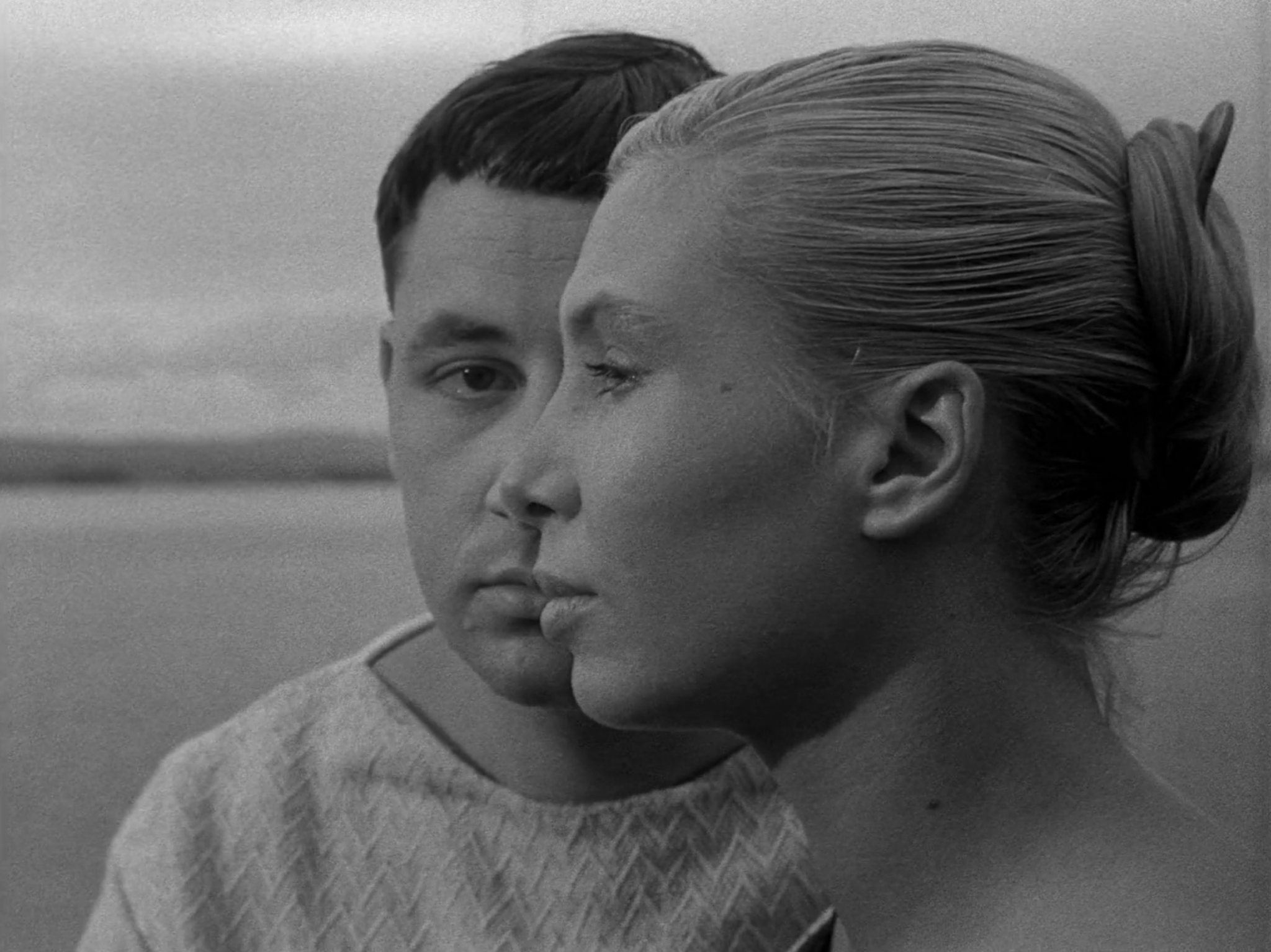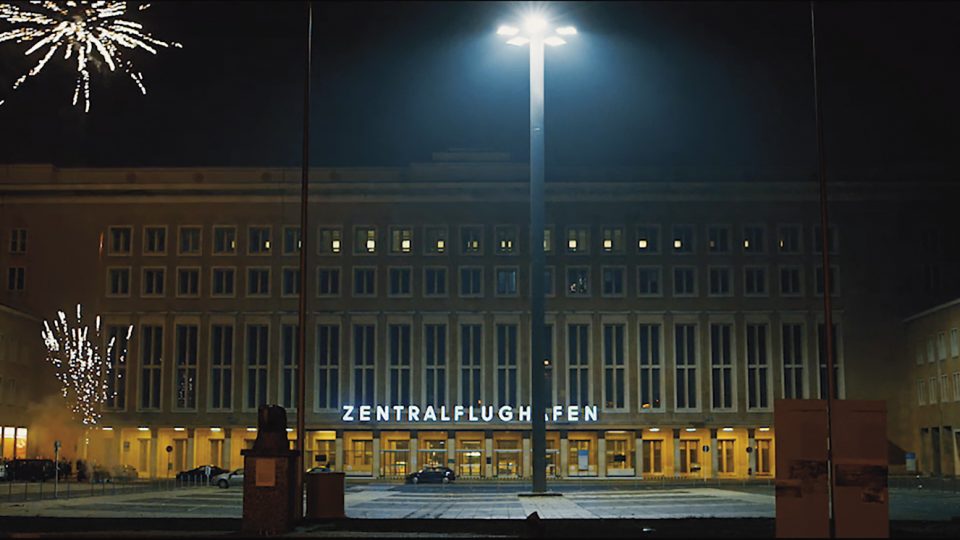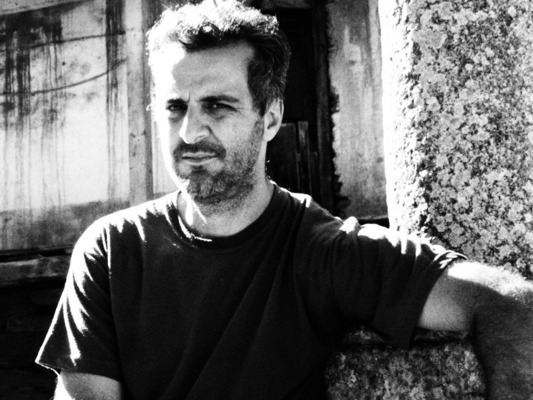
I’m not suggesting direct “anxiety of influence,” but there’s an irresistible visual and thematic connection between Ingmar Bergman’s cinema and Agnès Varda’s stunningly accomplished debut, La Pointe Courte (1955). A French couple living in Paris spends some time on the Northern coast, amidst fishermen, to talk out the haunting tensions in their relationship. Convinced that they should separate, Elle (Silvia Monfort) arrives on the coast where Lui (Philippe Noiret) is already waiting for her. Lui hopes that Elle may get to know the heartiness of his childhood village, La Pointe Courte, and having picked up the more peaceful, earthier spirit of the place, comes to appreciate the strength of his affection. It’s a deceivingly simple premise: Don’t we all assume that to truly love someone, we must lear where they come from? Lui means this almost ontologically: It’s not his full biography that he wants Elle to absorb, but rather the quintessentially unique spirit of the place.
Elle and Lui’s conversations run as a series of near-monologues. Sometimes frontal, both posing to the camera. Or else one lover’s portrait, shadowed by another’s profile, and vice versa. Such double-portraiture then became the hallmark of Bergman’s Persona (1966), so well-known that we may, in fact, forget that Vardas’s image came first.
Varda’s marriage story has a wistful aura: The more Elle and Lui talk, they more realize that they have become impossibly entwined; they can’t separate. This may sound needlessly fatalist, but in Varda’s rendition, the struggle is between Elle’s demand for exploration, her intellectual disquietude, versus Lui’s less demanding, more complacent view of life. What to Lui is the height of his achievement – their life in Paris, having come from the humble village, their marriage – to Elle has become limiting, a prison.
To a greater extent than Bergman, Varda marries brilliantly this existential disconnect with her documentary inquisitiveness. From the opening scene, she follows the peripeteia of fishermen’s lives. They are forbidden to fish in the richest lagoon, where some have found the basis of their livelihood. Inspectors chase the fishermen’s wooden boats on their modern speedboats and hand out fines and even prison terms for those who are caught. In the distance, the exhilarating, precise yet lyrical camera catches the sight of the smoking chimneys. The real criminal here is clearly the industry, which shouldn’t have been allowed to encroach so near the fishing areas, in the first place. The village life itself brims with activity: There are striking images of poverty and illness, when one of a widow’s seven children falls ill and dies; there are quarrels and debates among neighbors, at which age girls should have more liberty in deciding their fate; there are magnificent shots of sea, of canals.
Alain Resnais’s astute editing doesn’t try to make the couple and the village coalesce. In fact, the more they stand out from each other, the more the film gains in erudition. Elle and Lui are, after all, city people (Elle by birth, Lui through migration). Villages observe how bizarre it is to see them walk endlessly – we sense their perplexity at a modern, Baudelarian flaneur. The wife of Lui’s brother remarks, “They talk too much to be happy.” Perhaps. But Elle is also a sensuous person, and as she watches the championship of boatsmen jousting in the canal, she delights in the sight, and goes off to grab herself some ice cream. Lui doesn’t want a cone she brings, but he’s changed when she returns: Seeing her empty seat, he thought she was gone, for good.
Bergmanian cinema, and perhaps Varda’s own, will eventually take a different direction, but in La Pointe Courte, as in the early films of Michelangelo Antonioni (particularly, The Eclipse, 1962), and of Paulo Rocha (The Green Years, 1960), there’s a remarkable attention to the liminal spaces where village life and modernity coexist, without actually mingling. So close and yet so far. Within decades, many country folk will be absorbed into the cities, sometimes forgotten, other times, shamed, cast down, repelled. And the villages responding to the buzz of the cities will, with time, empty out. But La Pointe Courte is a vision of fullness, of a village and coastal life where one can return, relish, and perhaps absorb the fishermen’s resilience.
La Pointe Courte is currently streaming on The Criterion Channel. I’ve also written previously about Varga’s One Sings the Other Doesn’t.

